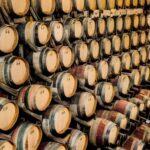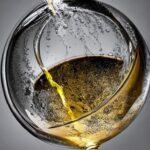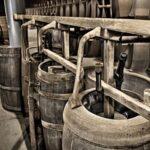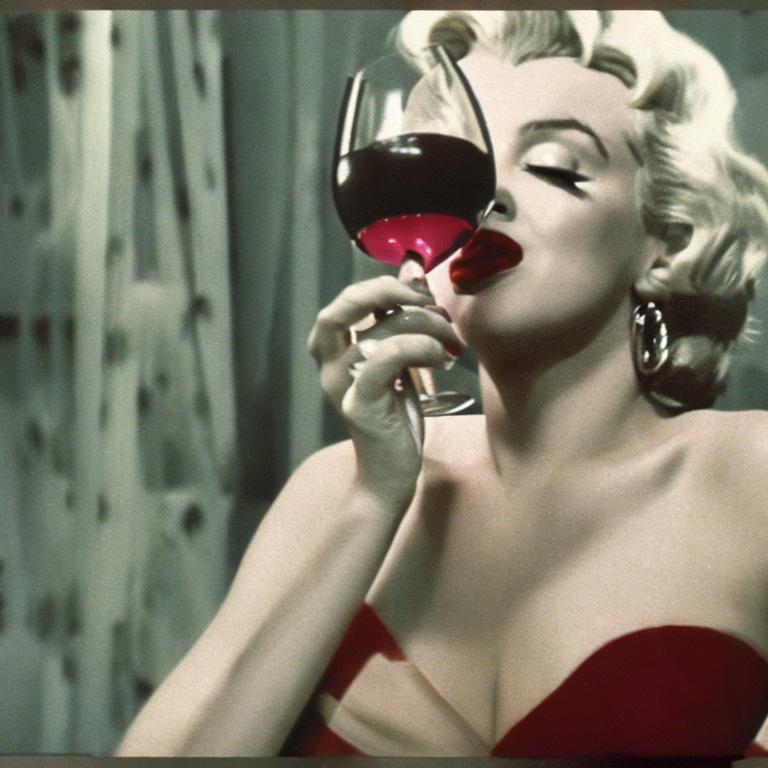La maturazione del vino è un processo fondamentale per sviluppare la complessità aromatica, il gusto e la struttura del vino stesso. La maturazione del vino può avvenire in diversi modi, ma in genere prevede i seguenti passaggi:
-
La maturazione in botti di legno: il vino viene trasferito in botti di legno, dove avviene una lenta evoluzione del vino grazie all’interazione tra il vino stesso e il legno della botte. Questo processo conferisce al vino aromi e sapori di vaniglia, tostatura, spezie e frutta secca, a seconda del tipo di legno utilizzato e della tostatura della botte. La durata della maturazione in botti di legno dipende dal tipo di vino e dalla preferenza del produttore, ma può variare da pochi mesi fino a diversi anni.
-
La maturazione in bottiglia: una volta imbottigliato, il vino può continuare a maturare in bottiglia, specialmente se viene conservato in una cantina fresca e umida. Durante la maturazione in bottiglia, il vino subisce una lenta evoluzione dovuta alla presenza di lieviti e batteri naturalmente presenti nel vino, che possono conferire al vino una maggiore complessità aromatica e una maggiore morbidezza.
-
La maturazione in acciaio inox: alcuni vini, come quelli bianchi e frizzanti, vengono maturati in acciaio inox per preservare la loro freschezza e acidità naturale. In questo caso, il vino non subisce l’influenza del legno, ma può beneficiare della maturazione sulle fecce, ovvero sulle parti solide presenti nel vino.
In ogni caso, la maturazione del vino richiede attenzione e cura da parte del produttore, che deve saper scegliere il giusto tipo di contenitore e la giusta durata della maturazione per ottenere un vino di qualità.
Le caratteristiche di un vino dipendono da molti fattori: andamento della fioritura dell’uva, grado di maturazione e rapporto succo-polpa con la percentuale zuccherina, condizioni generali del tempo, entità e qualità del raccolto, ammostamento, vinificazione, lavori successivi.
Se tutto è andato per il meglio e dopo un anno di riposo e di maturazione l’esperto è perfettamente in grado di giudicare un vino e i suoi sviluppi futuri, se il quantitativo di vino prodotto e la qualità sono soddisfacenti e se il produttore non ha urgenti necessità di realizzo, non è improbabile che questi propenda per la prima soluzione.
Se invece la produzione ha lasciato a desiderare come quantità e soprattutto come qualità e se, oltre a questo, il produttore ha bisogno di guadagnare, è fuori dubbio che il vino verrà venduto non come si trova ma corretto, nel rispetto o nella violazione del dettato legislativo.
Vediamo invece quale tecnica viene usata:
“Affinare” significa prendere un vino al suo primo anno di vita — quindi giovane — trattarlo e lavorarlo coi mezzi e sistemi consentiti dalla legge fin tanto che allo spirare del secondo anno di età possa essere destinato sia al mercato sia all’invecchiamento.
“Invecchiare”, significa invece prendere un vino (vergine o fiore) della stessa età e di caratteristiche ottimali, immune da difetti o malattie contratti durante l’ammostamento o la vinificazione, e passarlo ( dopo un anno di maturazione naturale ) all’invecchiamento in austere botti di legno pregiato o in bottiglie particolari nel mistico silenzio di una cantina.
L’affinamento
Affinare, dunque, vuol dire ingentilire un vino, generalmente a livello industriale, trattandolo in modo che divenga non solo commerciabile ma anche destinabile all’invecchiamento. Distinguere i vini che hanno subito tagli con altri vini per aumentarne la gradazione alcolica, alle cure e alle modificazioni, dalla chiarificazione (detta anche “collaggio”) alla pastorizzazione e alla refrigerazione.
Trattare un vino, magari apprezzabile — anche se non proprio eccellente — nella sua struttura naturale, con simili accorgimenti al solo scopo di facilitarne rapidamente lo smercio o di porlo in condizione di invecchiare al fianco di quelli nobili, non è truffa perché la legge non applica divieti; non è sofisticazione perché apparentemente non ne esistono gli estremi.
Trascorsa l’età giovanile e almeno un anno di maturazione in botti preferibilmente di legno forte e ben stagionato, il vino sano — e per sano intendo dire totalmente immune da difetti di ammostamento e di vinificazione — e di buona gradazione, può senz’altro passare all’invecchiamento.
L’invecchiamento
In che cosa consiste l’invecchiamento? Nel trasferimento del vino, dopo il periodo di maturazione e di assidue cure, in botti di rovere o di castagno ben stagionate e debitamente pulite e solforate.
Oppure, quando il produttore lo ritenga necessario, in bottiglie adatte collocate in locali adatti dove, attraverso processi biochimici (esterificazione, riduzione, ossidazione, idrolisi e fermentativi), il vino subirà quelle trasformazioni naturali che col tempo consentiranno di definirlo “nobile” a tutti gli effetti.
Distinguere tutto ciò che concerne i trattamenti cui, sempre a livello industriale, viene sottoposto il vino: dai comuni tagli con altri vini per aumentarne la gradazione alcolica, alle cure e alle modificazioni, dalla chiarificazione (detta anche “collaggio”) alla pastorizzazione e alla refrigerazione diviene determinante.
Come si realizza l’infiascatura e l’imbottigliamento dei vini?





